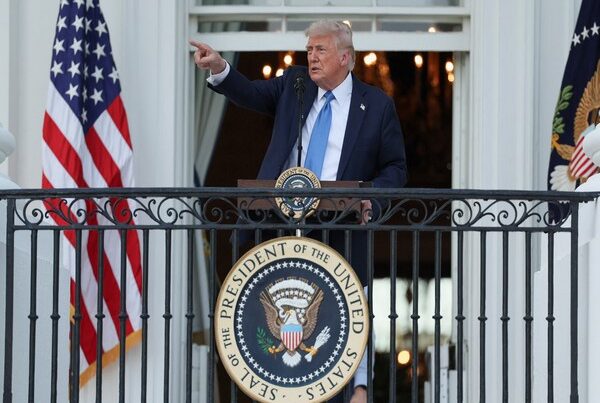
Hope Springs As Winter Fades
April is the cruellest month, breeding
Lilacs out of the dead land, mixing
Memory and desire, stirring
Dull roots with spring rain,
Winter kept us warm, covering
Earth in forgetful snow, feeding
A little life with dried tubers…
–TS Eiliot
If it was a hard winter, can spring be far behind? Surely, like the ‘Four Seasons’ of Vivaldi, it seems to be eagerly waiting at the next bylane, not lurking in the shadows, but hiding within the leaves and petals of old trees, smelling of bark soaked with dew and a narrow street full of little shops selling cotton saris and cotton nostalgia. The cold, frozen, mournful sound of the violin, moving inside the inner rooms of the unconscious, looking for warmth, will now give way to the vivacious, flowing, youthful, rippling music of the change of seasons, like the sun playing with the shimmering blue of the simmering waters of a naughty, unruly, mountain spring.
Life is not elsewhere, unlike what Milan Kundera wrote. Life is here and now, at this moment, living out its daily drudgery with its dogmatic demands, and, yet, looking for that sheer moment of liberation which shall soak the deepest core of the inner self, the hidden core, that raw, pure core, which the world cannot see, and which the world shall never see, as Jorge Luis Borges wrote in his famous: ‘Two English Poems’.
I can only offer you desolate and solitary streets, empty spaces, unknown destinations, he wrote, something which only his camouflaged core would know, and which has been preserved for the most precious friendships only. Spring brings back the two English poems because life is not elsewhere, and, because, as Pablo Neruda wrote, I live suddenly; at other times, I follow.
The zigzag, bubbly, lovely, happy-go-lucky mountain river, like a shining, silver, short story, in sharp sunshine, not knowing its destiny, celebrating the journey itself as the destination. Like that immortal Rafi song in ‘Hum Dono’, an anti-war film: Main zindagi ka saath nibhata chala gaya… har fikr ko dhuen mein uraata chala gaya…
The smile of an unknown man or woman, wrote Albert Camus, in an unknown town with pebbled streets, could make his day. He would carry that smile all day long inside him, and not even a grey twilight zone, smelling of whiskey, sadness and departures, could take away the beauty of that unknown smile.
It is like walking with deep attachment and exile at the same time. Like a stoic doctor walking with his medical bag, willfully choosing to remain steadfast in the city of Oran, where the people are trapped by a deathly epidemic, a rat-trap caused by rats. As in the great book by Camus, The Plague, located in the backdrop of World War II, and under the diabolic and sinister shadow of fascism in Europe, the impending death spectacles of the holocaust and mass murder of millions of Jews in the Nazi concentration camps run by Adolf Hitler, Eichmann, Goebbels, Goering and his buddies.
It is also located in the deathly realism of an epidemic, hence, the signs in our contemporary realm, especially in India, seem stunningly similar. There is evil stalking the air. There is the bad smell of bad faith in the air. There are frauds and scum-bags ruling the roost. There are one thousand lies, repeated again and again, thereby turning them into the ‘manufactured consent’ of truth.
The dark memories of the past remain etched, in the newspapers, documents, fact-finding reports, testimonies, books, documentary films, graveyards and homes. In old photographs, half-burnt in the carnivorous fires. You suppress and censor them, they come back, as if through a divine intervention. There are tears inside photo albums, there are black holes in the heart.
Like wars. Like the 20 million or more, mothers, young daughters, sons in the Red Army, who died in Soviet Russia defending their homeland; and, finally, defeating the fascists, trapped in the snow. Like in Ukraine now, Russian soldiers, Ukrainian civilians and soldiers, all the dead, young and old, families mourning, sleepless, millions turned refugees, children orphaned, separated from their mothers.
And these were the soldiers, across the border, whose ancestors fought together, hand-in-hand, against the might of Hitler’s murderous army, and whose memories are still soaked with such infinite sacrifice, comradeship and bravery! How much more cruelty and suffering can human civilizations celebrate and inflict upon itself? Who would win and lose in the final instance of such mindless devastation?
Wrote Svetlana Alexievich, who lived across all the borders in the pre-and-after era of the Soviet Union, in that heart-breaking collection of intimate, invisible stories, ‘The Unwomanly Face of War’: “And, finally – Victory… If life for them used to be divided into peace and war, now it was into War and Victory. Again, two different worlds, two different lives. After learning to hate, they now had to learn to love again. To recall forgotten feelings. Forgotten words. The person shaped by war had to be shaped by something that was not war.”
Meanwhile, The Telegraph from Kolkata reported a story of love in the time of the earthquake, with 40,000 dead in Turkey and Syria. When Amina Khatoon saw the news of a Turkish woman and her children stuck under the rubble, the Rohingya refugee in Delhi did not think twice before selling her last piece of jewellery to buy relief material for donation.
“The contribution is bound to pinch Amina, 56, and her family, who fled Myanmar 18 years ago, more than most of the donors at the Turkish embassy here. Their hut in a slum on the banks of the Yamuna was lost to a fire in 2018. She bought a pair of gold bangles with four years’ savings in 2021, as insurance for a calamity. The same year she had to sell one of them for a surgery she needed.”
She said: “This is a big calamity. Had I been back home in Myanmar, we would have sold some of our land and donated. I feel good that I am able to do something because I had this bangle. We have faced what people there are facing after the earthquake — to be without a home and support,” Amina told The Telegraph in Rohingya and halting Hindi, with her son, Hussain, translating.
“With ₹65,000 from the sale of the bangle, and some more money from their savings, Amina’s family bought cookies, jackets, milk powder, women’s clothes and blankets; filled two taxis with it and drove to the embassy from their slum in Zakir Nagar.”
Indeed, among thousands of similar stories from the ravaged landscape, when four little kids were finally taken out of the rubble in Syria, you should have seen the sublime smile on the face of the woman in the rescue team who first took the kid in her arms. The crowd roared in collective joy, as if a goal has been scored in a tense football match.
That is why, after a hard winter and cold wave, and the warmth of the ‘rajai’ smelling of naphthalene in old trunks, mixing with the faint fragrance of forgotten petals and leaves in forgotten books, life must now give way to the rippling river in Spring sunshine. Let the new season resurrect compassion, hope and resilience, amidst despair, doom and death. Let its restless freshness spread its wings, and destroy the bad smell in the air — and the evil stalking the land and the landscape.
Read More:http://13.232.95.176/
The article has a deep sense of aesthetics to comprehend the essense of humanity and its evolutionary status in all times and spaces. Life is beautiful but the status quo of its essense has witnessed all forms of orders and disorders of our socio political and cultural existence. I do agree that the dark age has taught many things that stimulate us intellectually and work very hard to make everything go with the ease as we all aware that more we become advanced and sophisticated we become complexed. The entire endeavours to make it very simple, the authoritarian ways and power centric mindsets have always been there to make the process more complicated, the beauty of life now faces the pack of simplicity, So the hope is the solution but it seems existing at the far distant crimson tinged horizon…But no journey never completes without the destination and that is nothing but what we hope…Great article to refurbish our superlative sense of Being.



